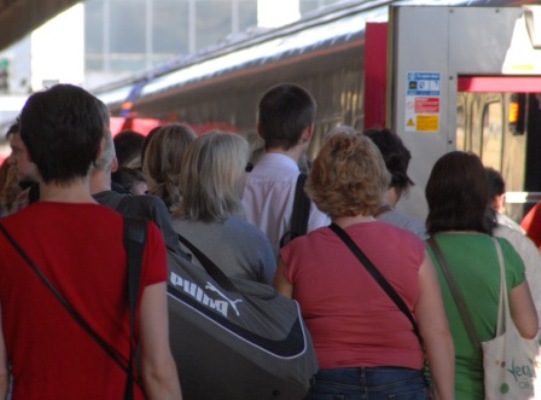 Poverty
Poverty 
One of the first concepts a child grasps is the principle of fairness. “It’s not FAIR, why me?” is a common rant of a foot-stamping three-year-old. It’s a deeply held emotion. Often, the retort from a parent can be ‘because I said so’. I recall the incandescent rage that such a response created in me when I was young.
The cry of unfair is often passed over with a glib ‘Well, life’s not fair is it? Get over it’ that’s usually the response of the one with the power. Is that the right response?
The powerful tell us that ‘We are in this together; everyone must make sacrifices’. But is that fair? Or rather, shouldn’t the biggest sacrifices be made by those who can afford to make them?
The visceral outcry from many at the current financial crisis still rumbles on. There remains a widely held view that it is deeply unfair for poor people to pay for the catastrophic business errors of private institutions – for them to be be bailed out, not by private investors (which would be right had they abided by the rules of the market) but by transferring private liabilities on to the state’s balance sheet.
The powerful say we must cut our cloth; benefits must be reduced. Forgetting the fact that most benefits are paid to those in work, this is a harsh sacrifice for many families already on the edge of poverty. Further reductions will seriously affect their lives and damage their children’s life chances.
Fairness has been a word I’ve become well accustomed to in recent months, mainly due to being on the York Fairness Commission. We heard from a great many people on how they saw fairness and how York could be a fairer place. A headline recommendation was that the city should become a ‘Living Wage’ city. If people are paid at least a living wage then they can contribute through their work and their spending.
The call is not just to the public sector but also to the private sector. In time we hope that to pay a living wage is a moral duty and a badge of honour. It also makes good business sense.
Of course it will have to be paid for; it will need to come out of the bottom line. If we are to have a fairer society, a more equal one – and the evidence is that this is good for us all – then cutting safety nets isn’t the answer; paying people a decent wage is. As a provider of care and support services at JRHT this commitment to paying a living wage – which we have announced this week – will not be easy to do, but we are committed to doing it.There will be debate; doubtless there will be disagreement, but if the powerful are, apparently, incentivised by low tax rates and bigger bonuses, why shouldn’t the poorest be respected by a ‘living wage’ instead of struggling on an income that confines them to a cycle of poverty?
John Kennedy is Director of Care Services at JRHT


